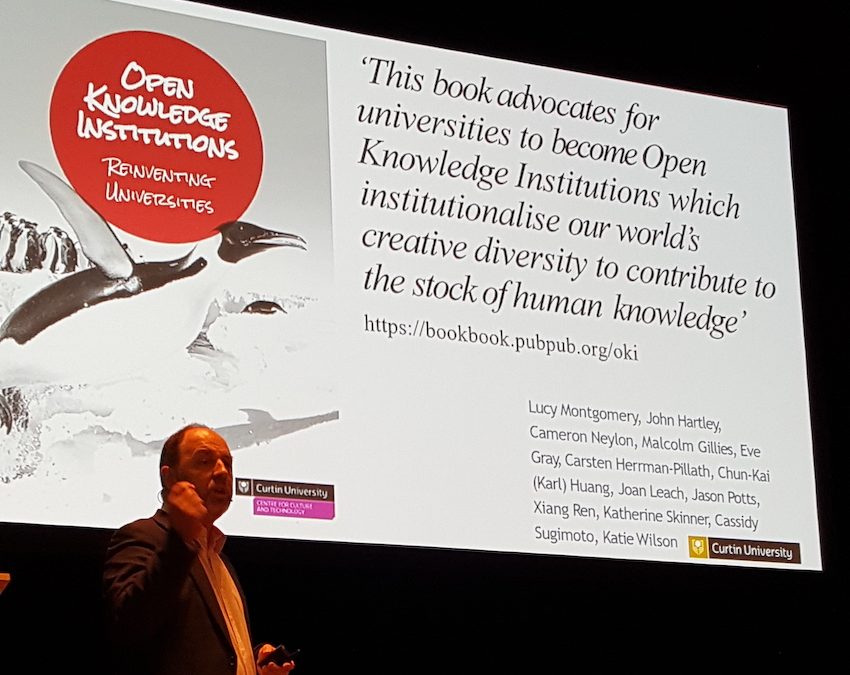
Can 13 authors, from the USA, Germany, Australia, China and South Africa, many previously unknown to one another, get together and, from scratch, write a 150-page book –– on a topic none of them has tackled before –– in 5 days?
If the group in question is committed to the same goals as MIT’s PubPub platform, to “socialize the process of knowledge creation”; and if the process they use is a Book Sprint, a professionally facilitated “collaborative process that captures the knowledge of a group of experts in a single book,“ then the answer is yes.
What drew our diverse group together is “open knowledge.” By this we mean not just the technical specifics of open access publishing or open source computing, and not just a general commitment to an open society, open government or open science, but a need to understand how these technical and social possibilities can be brought together in open knowledge institutions.
Specifically, how can the most long-lasting, successful and expanding version of a knowledge institution –– the university –– face the mounting challenges of global, digital and contested knowledge systems, in order to transform universities into Open Knowledge Institutions?
We present the results of our work here to the wider community for annotation, commentary, constructive criticism and engagement, with a view to extending the collaborative spirit further. We want the book to gain further analytical richness and precision from crowd-sourced expertise. You are invited to join us as we work through some of the issues that may enable or stand in the way of socialising knowledge itself.
‘This book advocates for universities to become Open Knowledge Institutions which Institutionalise our world’s creative diversity to contribute to the stock of human knowledge’
https://bookbook.pubpub.org/oki
This book is available in Open Access via an interactive commentary platform developed by MIT Media Lab run by MIT Press.
Visit the London School of Economics and Political Science blog site for further information.
Also featured on the European Commission’s Responsible Research and Innovation Toolkit.
Lorem ipsum dolor sit amet, consectetur adipiscing elit. Ut elit tellus, luctus nec ullamcorper mattis, pulvinar dapibus leo.
